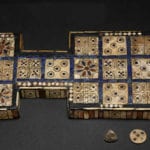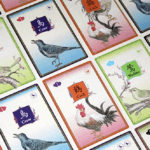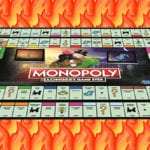 History
History  History
History  Weird Stuff
Weird Stuff 10 Wacky Conspiracy Theories You Will Need to Sit Down For
 Movies and TV
Movies and TV 10 Weird Ways That TV Shows Were Censored
 Our World
Our World 10 Places with Geological Features That Shouldn’t Exist
 Crime
Crime 10 Dark Details of the “Bodies in the Barrels” Murders
 Animals
Animals The Animal Kingdom’s 10 Greatest Dance Moves
 Movies and TV
Movies and TV 10 Box Office Bombs That We Should Have Predicted in 2025
 History
History 10 Extreme Laws That Tried to Engineer Society
 History
History 10 “Modern” Problems with Surprising Historical Analogs
 Health
Health 10 Everyday Activities That Secretly Alter Consciousness
 History
History 10 Dirty Government Secrets Revealed by Declassified Files
 Weird Stuff
Weird Stuff 10 Wacky Conspiracy Theories You Will Need to Sit Down For
 Movies and TV
Movies and TV 10 Weird Ways That TV Shows Were Censored
Who's Behind Listverse?

Jamie Frater
Head Editor
Jamie founded Listverse due to an insatiable desire to share fascinating, obscure, and bizarre facts. He has been a guest speaker on numerous national radio and television stations and is a five time published author.
More About Us Our World
Our World 10 Places with Geological Features That Shouldn’t Exist
 Crime
Crime 10 Dark Details of the “Bodies in the Barrels” Murders
 Animals
Animals The Animal Kingdom’s 10 Greatest Dance Moves
 Movies and TV
Movies and TV 10 Box Office Bombs That We Should Have Predicted in 2025
 History
History 10 Extreme Laws That Tried to Engineer Society
 History
History 10 “Modern” Problems with Surprising Historical Analogs
 Health
Health 10 Everyday Activities That Secretly Alter Consciousness
Top 10 Board Games Rules You Probably Didn’t Know
For centuries, board games have been a way for people to pass the time, compete, and build memorable moments in their lifetimes. From throwing dice to moving tokens, the simple moves in board games usually wash our memories in nostalgia from just the mention of them. We all have our favorites, games that we’ve played for years. So often, we haven’t looked at the instructions in eons…and that may have been a mistake.
Most board gamers know how to set up their favorite games, get the game going, settle rule disputes, and know the winning conditions. However, many board games are taught to people through verbal telling of the rules, as the rule book tends to get lost in the constant packing and unpacking of the game. That is a shame, as most rule books would tell you how to speed up the game, make it more fun, or let you know that you’ve been downright doing something wrong all these years. So, with that in mind, we’ll explore 10 board game rules you probably didn’t know.
Related: Top 10 Best Board Games Of All Time
10 Free Parking Is Really Free Parking
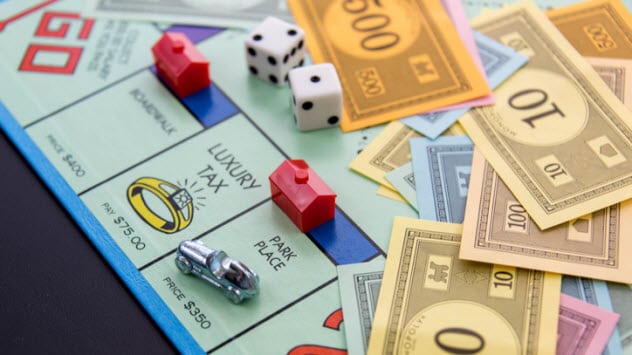
Monopoly has been a family-favorite staple in living rooms for over a century. It is the source of countless hours of fun and more than its fair share of anguish. Most people agree this classic board game is one that you must dedicate time to playing in one session. Monopoly clocks in at over three hours for game play. But the extra long time may be your fault.
Ask most people about the Free Parking space, and they’ll tell you it’s a favorite spot to land, usually netting money from taxes collected, jail fees, and other sources of funding. But the Free Parking space is just that, a free space. According to “The Rules of Monopoly,” Free Parking is nothing more than a worry-free space to land on. All that extra money being paid out means extra chances to play when landing on a property, which logs in added time in the game. Leave the money off Free Parking, and you can watch your game time go down to about 60-90 minutes.[1]
9 You Only Have To Draw One Card in Uno
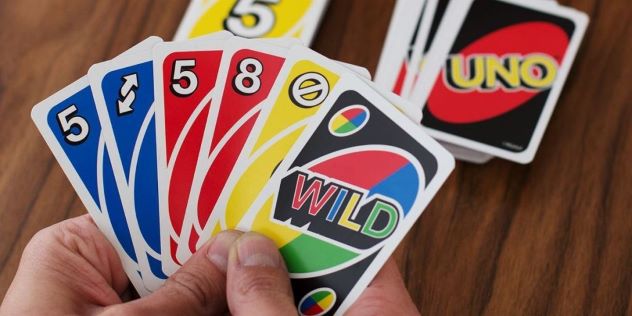
Draw 2, Draw 4, Skip, and Reverse! Most people enjoy dropping those consequence cards on their fellow players in Uno. But there’s no worse feeling than being close to Uno as the player before you drops a card you can’t match. The possibility of drawing up to a substantial number always looms when you get close to the end, causing some games to go on for hours.
But hold your horses! Thanks to a post from Uno’s Facebook, when a player does not have a matching color or number in hand, they only have to draw one card. They don’t have to draw until they match. Most house rule players have omitted this time-saving rule, but playing with the official rules can significantly cut your game time.[2]
8 You Can Be Anywhere To Win Clue
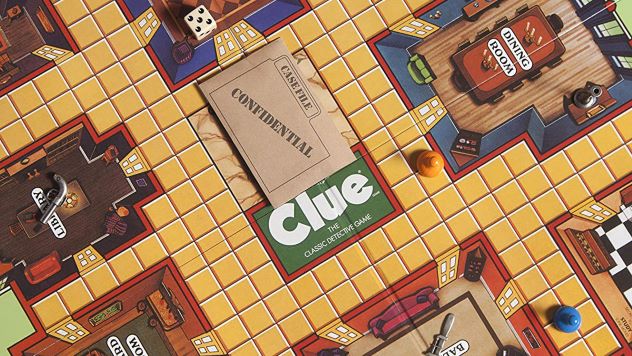
You figured it out! You know Professor Plum is the killer. He used the wrench. He did it in the kitchen. Only problem: your game piece is in the Billiard room, and Col. Mustard is blocking the closest door. It will take many rolls of the dice to cross the game board and make it over there so you can confidently share your accusation…or is it?
“The rules of Clue” state that you have to be in the room you are making the suggestion in when collecting clues. However, to make your Final Accusation, you can be in ANY room. So instead of having to roll your way across the board, hop into the closest room, point the finger, and let justice prevail…as long as you’re correct.[3]
7 You Can Fire Multiple Times in Battleship

B4, Miss. C6. Hit! There’s nothing more fun than trying to use strategy and luck to sink your opponent’s naval fleet in the classic board game Battleship. Turn after turn of nailing down exactly where those ships are hiding and that feeling of satisfaction when you find your opponent’s hard-to-find battleship. But the one shot per turn firing can leave the pace dragging.
Milton Bradley realized this and included the rules from the original 1937 version of the game called Salvo. In the Salvo version, a player fired one time for each remailing ship their opponent had. So, on your turn, a player could fire 5 times. Sink an enemy ship? Now you’re shooting 4 times. This multi-round rule allows for quicker gameplay and more nail-biting fun when you get down to one shot per turn.[4]
6 In the Game of LIFE, You Can Steal From Retirees
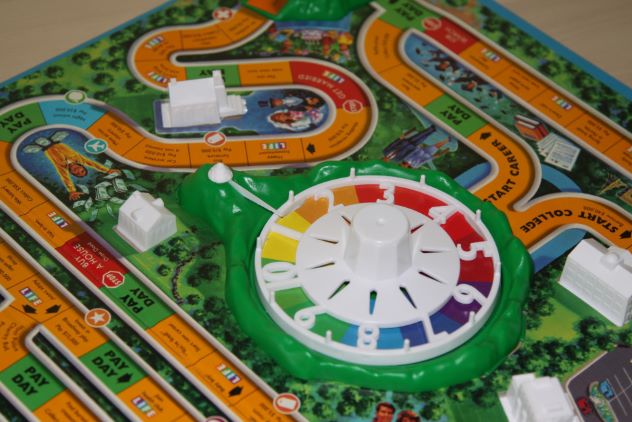
Racing down the highway of life, collecting pegs to extend your family, and striving to retire at Millionaire Estates, one spin of the wheel at a time. The Game of LIFE is treasured for its ease of learning but dreaded for its hours of replay. It can be fun when you get a session of six players, but resources tend to be slim.
There are 25 LIFE tokens in the box, giving you end-game rewards to try to put you over the top. Once all 25 tokens are gone, the LIFE token space usually is only a free space, right? According to “The Rules for The Game of LIFE,” if a player has retired to Millionaire Estates and there are no more LIFE tokens available, their LIFE tokens are now up for grabs. Not a fan of having your LIFE tokens on the chopping block? Retire to the quieter Countryside Acres for the trade-off of not being in the running for the other players awaiting Life Tokens.[5]
5 You Can Use a Yahtzee Anywhere in Yahtzee
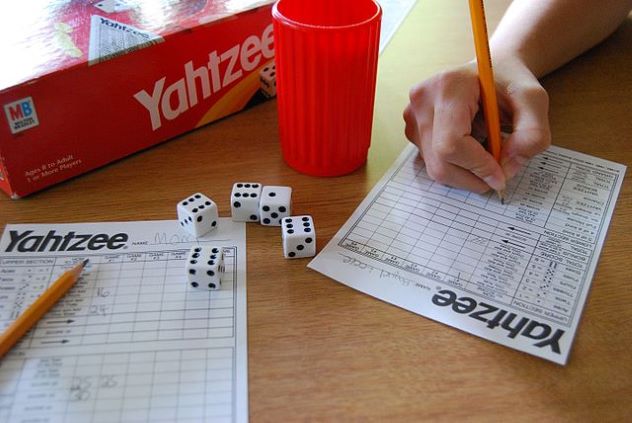
For over 60 years, friends, family, and frenemies have gathered around five dice to try to outscore everyone to become the winner of Yahtzee. Using roll outcomes like poker hands, people roll the dice to score the most points. What makes Yahtzee dangerous is how many times you can use a roll outcome. Let’s say on one turn you end up with 5-5-5-5-1. Do you use that outcome to fill out the 5s category? Or maybe four of a kind? Once you take the points on one category, you’re locked out of using it again…except for one outcome.
When you roll a Yahtzee, you get 50 points and fill in one of the most challenging lines on your scorecard. But what happens if you get another Yahtzee? Well, according to “The rules of Yahtzee,” you get an additional 100 points, but you can place it anywhere, as long as the corresponding numbers category has already been filled. Remember the roll from before? Let’s say you put it in the 5s category. Next turn, you roll all 5s, but you already had a Yahtzee earlier. You can now use that Yahtzee to fill in any other category for the points. You can even use it to fill in the other number categories, although it gives you zero points for that number because none of the numbers match. [6]
4 You Can TWERK in Scrabble

It is not advised you bust out your best dance moves while playing this classic crossword builder game, but TWERKING is now a legal Scrabble word.
When most players take on opponents in Scrabble, they use a trusted source for word verification—the dictionary. The thick book of definitions is the final word of truth for verification. Nope, not really! While the dictionary is a fantastic tool, the average person doesn’t update their reference books. As a result, a dictionary can be sitting on a shelf for years before being used, not accounting for changes in our language.
Well, the good people at Scrabble fixed this issue with the official Scrabble players dictionary. This online tool is updated annually, adding hundreds of words at a time as our vocabulary grows. Got a BIT in your hand, and someone played COIN? Add those tiles for a digital currency that can be a pretty high-scoring word. Want to play EW or OK? Go for it! Scrabble’s new edition gives you more ways to win. So now you finally get your chance to TWERK and make it count.[7]
3 Not Everyone Wins in Jenga

It’s down to the wire. Every piece you touch is wobbly, precariously sitting on a skeleton of a frame, and you have to make a move. You examine and recognize it. A piece of wood that could be your salvation. You tap it. It looks like it will move. You commit. You pull the piece in one smooth motion and breathe a sigh of relief, only to watch tens of wooden blocks come crashing down to the delight of everyone else in the room as they exclaim, “Jenga!”
The block stacking party game has been a favorite among people who want to determine how dexterous and nimble they are. It’s a terrific game for groups, as several people can huddle around the tower and take turns until the tower falls. Many usually celebrate when the tower falls for all the players, but that celebration may want to be tapered down to only one person.
According to the official rules of Jenga, the winner of the game is the last person to successfully pull a Jenga block from the tower and stack it at the top, not the group. So, even though it’s a multiplayer game and multiple people didn’t knock over the tower, there is only one true winner of a Jenga game.[8]
2 Sometimes It Pays To Botch the Surgery in Operation
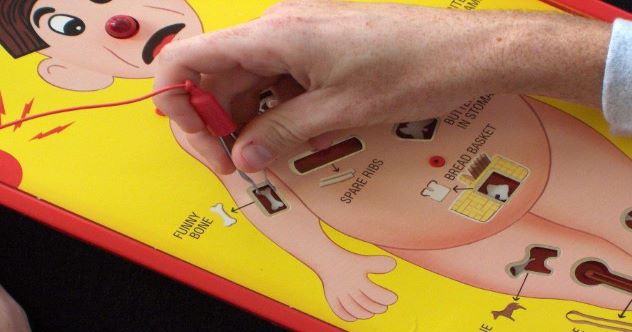
The classic board game of surgical removal of a patient who is awake the whole time is a test of reflexes and nerves. Use the tweezers to pull out the part indicated on the card and don’t touch the sides, else you’ll turn the patient’s nose red and lose your chance of making money.
In the game of Operation, you are dealt out a specialty card before the game. This card makes you a Specialist for a certain surgery. For a short while, you may be the world’s foremost expert in Charlie Horse extraction. The benefit of the Specialist card is that when another player fails at a surgery, you are a Specialist. You then get to undertake the surgery and get paid a premium.
There may come a time when you draw an operation you are a specialist in. “The rules of Operation” do not state you only get one chance. They state once a doctor operates and fails, the specialist is brought in. This means that you could purposely fail the operation the first time, only to immediately get a second chance—at a higher rate of pay. In real life, this would lead to a malpractice case, but on a board game, it’s a pretty savvy way to make a quick payday.[9]
1 The Last Can Be First in Scattergories
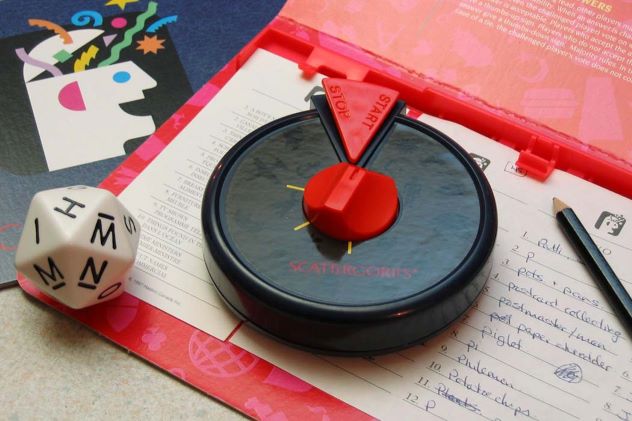
Scattergories is a fast-paced word game that tests your thinking skills and creativity. Only 60 seconds to fill in categories with the letter determined from a roll of the die.
Let’s say you’re in the middle of a game. The die has been rolled. The letter is K, and you’re stuck on your first Scattergory: “Fictional Famous People.” Sure, you know many people with last names starting with K, but you’re blanking on a first name. What to do?
Don’t panic. One of the most forgotten tools of Scattergories is using the comma. According to the official rules of Scattergories, you can use the comma to list the last name of a person first. So instead of Captain James T. Kirk getting you no points, Kirk, James would get you a point in the category.[10]
